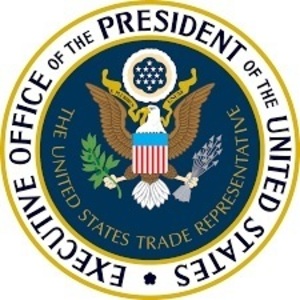USTR report addresses barriers to US pellet exports




May 7, 2020
BY Erin Krueger
The Office of the U.S. Trade Representative recently issued its 2020 National Trade Estimate, an annual report detailing foreign trade barriers faced by U.S. exporters of goods and services and USTR’s efforts to reduce those barriers. Wood pellets are among the products addressed in the report.
The report notes that some unresolved concerns remain that the U.S. continuous to actively monitor regarding the impact of the European Union’s revised Renewable Energy Directive’s (RED II) complex sustainability criteria for biomass on U.S. exports of sustainable wood pellets. “Whether forest management costs will increase due to certification requirements, logger training, and monitoring remains to be seen,” said the USTR in the report. “If the wood cannot be recognized as meeting the sustainable standards for renewable energy, it could lose its competitive advantage to export. The United States exported $793 million in wood pellets to the EU in 2018 (latest data available).”
Advertisement
In the report, the USTR explains that RED II requires European Union member states to prepare 10-year national energy and climate plans (NECPs) for 2021 to 2030 that outline how they will meet the new 2030 targets for renewable energy and energy efficiency. Member states were required to submit a draft NECP by the end of 2018. Final plans were to be submitted by the end of 2019. As of March 4, the USTR said France, Germany, Ireland, Luxembourg, Romania and Spain had failed to submit final plans.
In December 2019, however, the EU published a communication regarding the European Green Deal, which includes a plan to reassess the sustainability criteria for biofuels and forestry biomass. “Depending on how the sustainability criteria is structured in the renegotiations of RED II, the revised directive could impede hundreds of millions of dollars of biomass exports to the EU,” the USTR said in the report. “The United States continues to monitor developments and evaluate the potential impact on U.S. exports.”
The report also notes that actions being taken in the Netherlands threaten to impede U.S. wood pellet exports. For example, the Forest Stewardship Council has developed standards for wood pellets that have been supported by the Dutch government and effectively require U.S. producers to meet onerous certification requirements.
Advertisement
“On March 30, 2015, the Dutch government amended the regulation governing sustainability requirements for solid biomass and implemented onerous sustainability criteria for wood pellets,” said USTR in the report. “These criteria include a requirement for sustainability certification at the forest level, effectively precluding reliance on the U.S. risk-based approach to sustainable forest management. As a result of the implementation of the criteria, wood pellet exports to the Netherlands have not kept pace with demand. Although U.S. exports of wood pellets to the Netherlands increased to $19.2 million in 2019, industry suggests the market would have much greater potential if trade requirements were simplified.”
A full copy of the report can be downloaded from the USTR website.
Upcoming Events





